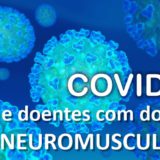Uso de Quercetina em camundongos com distrofia muscular
USA – um grupo de pesquisas estudou a quercetina, um suplemento alimentar, em camundongos com distrofia muscular. O uso da quercetina causou aumento da capacidade respiratória e melhora da função cardíaca nos animais tratados. A quercetina parece ter efeito anti-inflamatório, antioxidante entre outros efeitos.
Os resumos desta pesquisa em inglês podem ser lidos abaixo:
6 – (Experimental Biology, 2014) Effect of chronic quercetin supplementation on dystrophic cardiac pathology in mdx mice
Joshua Selsby, Christopher Ballman, and John Quindry -USA
Duchenne Muscular Dystrophy (DMD) includes cardiac complications with 10-40% of deaths resulting from cardiac pathologies. In absence of a cure, we are exploring clinically viable interventions to counter cardiac complications associated with DMD. Quercetin (Q) is a SIRT-1/PGC-1α activator that up-regulates antioxidant genes, mitochondrial biogenesis, and decreases inflammation when taken by nutraceutical means. Thus, we investigated 0.2% Q dietary enrichment to counter cardiac abnormalities in mdx mice, a widely used model for DMD. Mice were randomly treated from either 3 weeks or 3 months for a 6 month intervention (3w6m or 3m6m, n=10/group). Control (C) mice consumed rodent chow for equal time periods (n=10/group). At the end of the study, hearts were excised, weighed, and frozen (-80 C°), cut into 10µm sections for immunohistochemistry, or prepped for western blotting (WB). Body weight did not change. Relative and absolute heart weights were decreased in Q3m6m mice (p=.03,p=.021). WB targets for mitochondrial biogenesis (Cytochrome C, p=.045) and antioxidant expression (SOD2, p=.012) were increased in Q3w6m mice. Indications of remodeling and fibrosis (MMP9, p=.043, hematoxylin and eosin, p=.001) were improved in Q-fed mice while TGFβ-1 expression was unchanged. 6 months of Q feeding improved long term markers and appears to effectively attenuate dystrophic cardiac pathology. Based on findings from younger mice, improvement in mitochondrial content and antioxidant activity may precede these outcomes. Results reveal a promising intervention to complications of dystrophic cardiac pathology. Additional experiments are needed to confirm these findings with more reductionist approaches.
6 – (Experimental Biology, 2014) Dietary quercetin enrichment improves respiratory function in mdx mice
Joshua Selsby, Christopher Ballman, and John Quindry -USA
Duchenne muscular dystrophy (DMD) is caused by a dystrophin deficiency and results in progressive muscle injury culminating in death due to respiratory or cardiac failure. We have established that gene transfer of the exercise mimetic, PGC-1α, will decrease disease severity and improve muscle function in skeletal muscle taken from mdx mice, the mouse model of DMD. While this approach is effective and repeatable, at present it is not readily translatable. Hence, the purpose of this project was to determine the extent to which oral delivery of quercetin, a PGC-1α activator, would improve respiratory function in mdx mice. To address this purpose baseline respiratory function was measured in vivo in two month old C57 and mdx mice. After measurement, the mdx group was randomly assigned into groups receiving a control diet (mdx) or diet enriched with 0.2% quercetin (mdx-Q). Respiratory function was measured again at four and six months of age. By six months of age we found that a 16% (p<0.05) increase in respiratory frequency and a 12% (p<0.05) increase in tidal volume caused a near 30% (p<0.05) increase in minute ventilation in mdx-Q compared to mdx. Further, peak inspiratory flow was increased 20% (p<0.05) and peak expiratory flow was increased 26% (p<0.05) in mdx-Q compared to mdx. These data suggest strongly that dietary enrichment of the orally available PGC-1α activator, quercetin, attenuated muscle injury and improved respiratory function in a mouse model of Duchenne muscular dystrophy.



